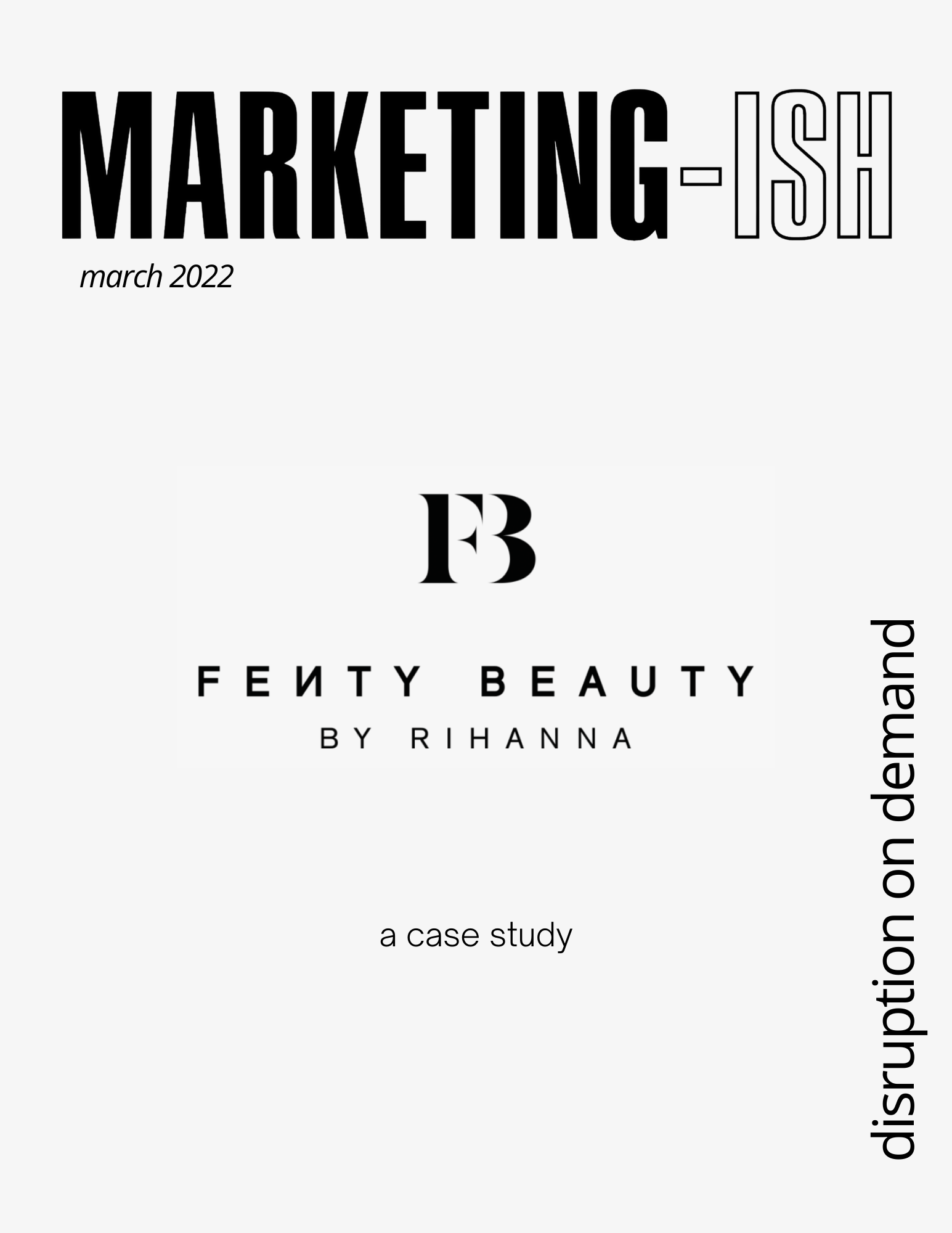Fenty Beauty: Case Study
Fenty Beauty came to fruition through Rihanna’s partnership with Kendo Holdings, Inc., a “cosmetics incubator” that is a part of the Louis Vuitton SE corporate family, also known as LVMH. Contrary to the expectation that celebrities do not partake in the creation of their brands, Rihanna was deeply involved in all of the developmental stages for Fenty Beauty from product formulation and packaging, to marketing. Two of the most important key aspects that Rihanna, Fenty Beauty, and the Kendo team focused on for the creation of the cosmetics brand were inclusive product development and inclusive marketing, areas in which the cosmetics industry had been lacking for years.
White models have been overrepresented in the cosmetics industry for years until Rihanna began making space for inclusivity in 2017 with the launch of Fenty Beauty. A 40-shade foundation line was a part of the initial launch in 1,620 stores in over 17 countries and shipping was made available to over 137 countries. The foundation drop was so important to Rihanna because despite being an international pop-star with easy access to many different makeup artists, she still experienced disappointment at the outcome of some of her makeup looks as a Barbadian woman of color. She wanted to create a line in which “women everywhere would be included,” and that offered equal opportunities for self-expression through cosmetics. The Fenty Beauty Pro Filt’r Soft Matte Liquid Foundation shades ranged from the palest of whites that are suitable for people with albinism to the deepest of browns for highly-melanated skin. However, the inclusive product development did not stop there. Fenty Beauty created a variety of other products, such as bronzers and blushes, that would appear on highly-melanated skin, a universal lip gloss that looks good on every skin color, and highly pigmented lipsticks in flattering shades. Eventually, the beauty brand increased its foundation shade range from 40 to 50 with corresponding concealers.
Additionally, from the very beginning, Fenty Beauty made sure that its inclusive marketing approach was about showing, not telling. The brand had actually never used the word “inclusive” in its messaging because Fenty Beauty was consistently challenging the status quo by hiring a diverse range of models that were typically not seen at the time. It is noteworthy that Fenty Beauty hires male models as well because men should feel comfortable wearing makeup too, suggesting that no one gets left behind. Ultimately, the brand is about creating space for everyone who has been underrepresented in the cosmetics industry. Not only did its inclusive marketing approach consist of hiring diverse models, but it also shared the stories of the diverse audience they had touched. Through their socials, Rihanna and Kendo had shared emotional responses of customers who were finally able to find their perfect foundation shade because it made them finally feel seen.
As a result of its inclusive marketing approach and inclusive product development, Fenty Beauty amounted to $100 million in sales within the first month of its launch, pushing Fenty Beauty to rank third behind well-established brands like MAC Cosmetics and Too Faced, which had already been in the market since 1984 and 1998, respectively. Additionally, Fenty Beauty’s earnings were five times those of its closest competitor, Kylie Cosmetics. Within the first eighteen months of Fenty Beauty’s launch, the brand had accumulated $570 million. By mid-2019, Fenty Beauty was estimated to be worth roughly $3 billion. Not only did Fenty Beauty generate amazing sales through its inclusivity, but it created what is now known as the “Fenty Effect”. Following the “Fenty Effect”, other cosmetic brands followed through with making 40 shades or more for their foundation lines because Fenty made that shade range the new norm. However, not every brand had expanded its shade range with BIPOC in mind. In other words, Fenty Beauty had formulated its products to ensure they looked good on every skin tone possible. By catering to a market segment that was ignored within the cosmetics industry, Fenty Beauty gained a competitive advantage and will be remembered as a revolutionary brand that not only had a “Fenty Effect” on the cosmetics industry, but also impacted diversity in fashion runways.


